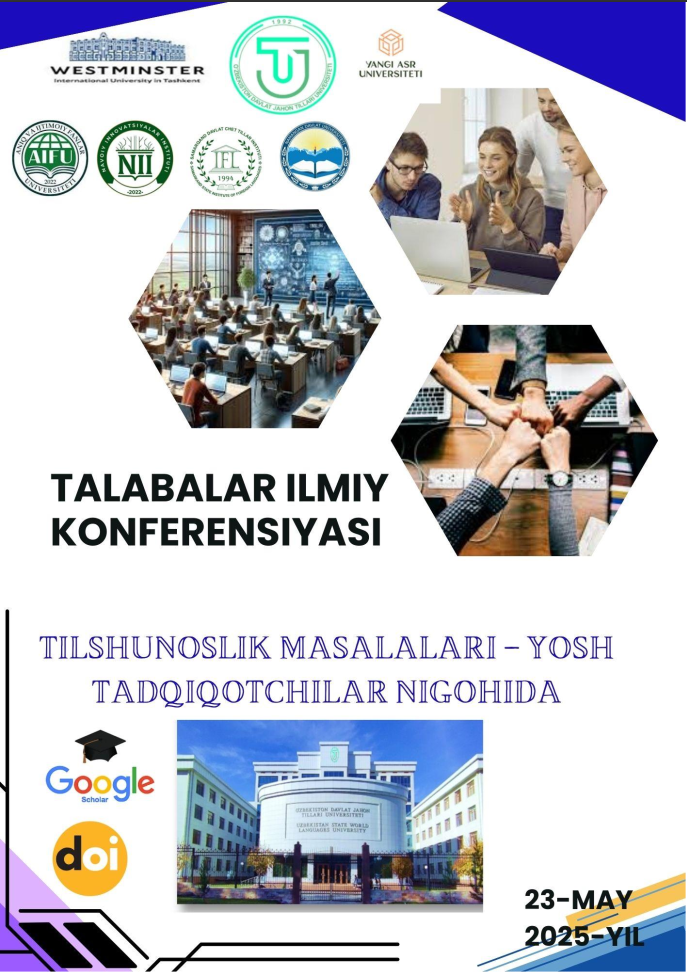GASTRONOMIC VOCABULARY AND PHRASEOLOGY: COMPARATIVE ANALYSIS OF PROVERBS AND SAYINGS IN ENGLISH AND UZBEK LANGUAGES
https://doi.org/10.5281/zenodo.15572386
Kalit so‘zlar
gastronomic phraseology, proverbs, comparative linguistics, English, Uzbek, cultural semantics, idiomatic expressions, food metaphors.Annotasiya
This article explores the use of gastronomic vocabulary and phraseology within proverbs and sayings in English and Uzbek, highlighting how food-related expressions reflect cultural values, everyday life, and national identity. By conducting a comparative linguistic and cultural analysis, the study reveals similarities and differences in the metaphorical and symbolic meanings of food items across the two languages. The research demonstrates that gastronomic phraseology is a rich source of ethnolinguistic information, serving not only as a linguistic phenomenon but also as a reflection of historical development, mentality, and traditions of both nations. The paper also identifies common conceptual domains such as bread, salt, meat, and tea, and examines their pragmatic roles in forming idiomatic expressions. The findings contribute to cross-cultural understanding and offer insights into the ways figurative language shapes and reflects worldview
Foydalanilgan adabiyotlar ro‘yhati
Amonov, M. (2012). Proverbs and sayings as a source of folk wisdom. Andijan: Andijan State University Press.
Barlykova, Z. (2014). “Cultural Codes in Gastronomic Phraseology”. Philology and Culture, 38(4), 47–50.
Cambridge International Dictionary of Proverbs. (1996). Cambridge: Cambridge University Press.
Cowie, A. P., Mackin, R., & McCaig, I. R. (1983). Oxford Dictionary of English Idioms. Oxford: Oxford University Press.
Khudoyberganova, D. (2015). Food Phraseologisms in Uzbek Folklore. Karshi: Nasaf.
Kunin, A. V. (1996). Course of Phraseology of Modern English. Moscow: Vysshaya Shkola.
Madrahimov, A. (2007). Annotated Dictionary of Uzbek Proverbs. Tashkent: National Encyclopedia of Uzbekistan.
Mamarasulov, S. (2010). Linguistic and Cultural Characteristics of Proverbs and Sayings Used in the Uzbek Language. Tashkent: Fan Publishing House.
Mieder, W. (2004). Proverbs: A Handbook. Westport, CT: Greenwood Press.
Permyakov, G. L. (1979). Fundamentals of Structural Paremiology. Moscow: Nauka.
Phraseological dictionary of the Russian language. (2005). Moscow: AST Press.
Sayfiyeva, N. (2018). “Cross-cultural Aspects of Idiomatic Expressions in English and Uzbek”. International Journal of Humanities and Social Science Invention, 7(6), 20–25.
Tursunova, S. (2019). "National Identity Reflected in Uzbek Gastronomic Proverbs". Journal of Linguistic Studies, 1(2), 78–84.

